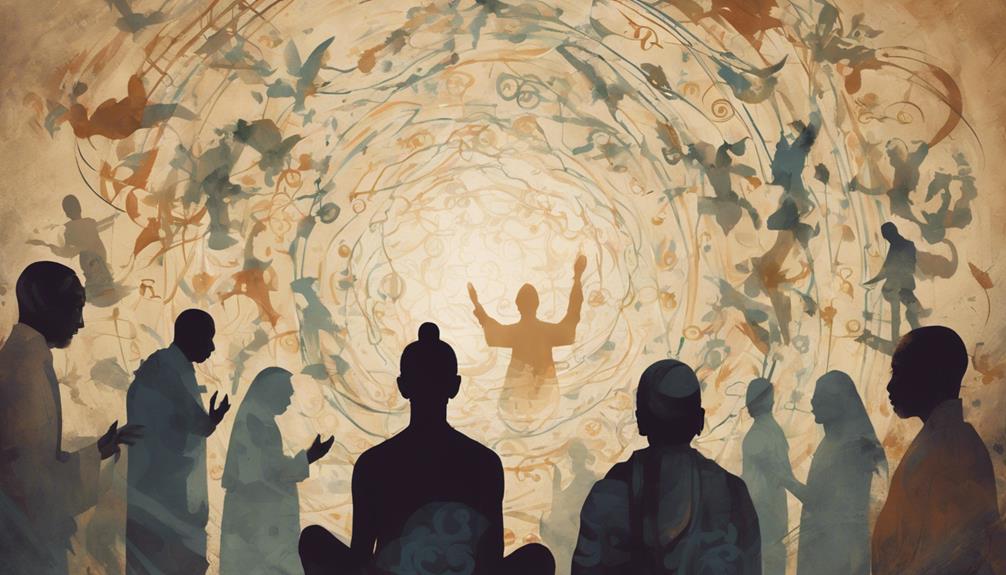The complexity of human beliefs is a subject that continues to intrigue psychologists, sociologists, and philosophers alike. As individuals navigate the intricacies of their existence, the origin of their diverse beliefs remains a multifaceted puzzle. From the influence of early socialization to the imprint of cultural heritage, numerous layers contribute to the intricate tapestry of beliefs that define our perspectives and shape our interactions with the world. Exploring the underlying mechanisms that drive the formation and evolution of beliefs unveils a fascinating journey into the depths of human cognition and societal constructs, offering valuable insights into the mosaic of human diversity.
Key Takeaways
- Socialization, cognitive processes, and exposure to diverse information sources shape individual beliefs.
- Upbringing, societal norms, and cultural diversity influence belief systems significantly.
- Education fosters critical thinking, challenges beliefs, and promotes openness to new ideas.
- Tolerance, open-mindedness, and personal experiences play pivotal roles in diverse belief formation.
Origin of Diverse Beliefs

The origin of diverse beliefs can be traced back to a complex interplay of individual experiences, cultural influences, and cognitive processes. Socialization plays a crucial role in shaping beliefs, as individuals are influenced by the norms, values, and practices of their communities, families, and educational environments. Through socialization, people learn to adopt specific belief systems that align with the dominant ideologies around them. Additionally, cognitive processes such as perception, interpretation, and reasoning contribute to the formation of diverse belief systems. How individuals process and make sense of information significantly impacts the beliefs they hold.
Moreover, exposure to a variety of information sources, including media, peers, and religious institutions, exposes individuals to different perspectives and worldviews, further contributing to the diversity of beliefs. Psychological factors like cognitive biases, emotional responses, and personality traits also play a role in shaping individual beliefs. By understanding the intricate interplay of socialization, cognitive processes, and diverse belief systems, we can gain insight into why people hold the beliefs they do.
Influence of Upbringing on Beliefs
In shaping individuals' beliefs, the influence of upbringing manifests through early exposure to cultural, religious, and familial values. Family teachings and traditions play a pivotal role in shaping beliefs and attitudes towards various aspects of life. During childhood, experiences and interactions within one's immediate environment heavily influence the formation of personal beliefs. Cultural norms absorbed during upbringing contribute significantly to the diversity and uniqueness of individual belief systems. The societal expectations ingrained in a person from a young age can have a lasting impact on their beliefs and behaviors. The influence of upbringing on beliefs highlights the critical role of early socialization in molding individuals' perspectives and values. By internalizing cultural norms and familial beliefs, individuals develop a framework through which they interpret the world around them. Understanding the profound impact of upbringing on beliefs underscores the complexity of human belief systems and the multifaceted factors that contribute to their formation.
Impact of Societal Norms on Beliefs
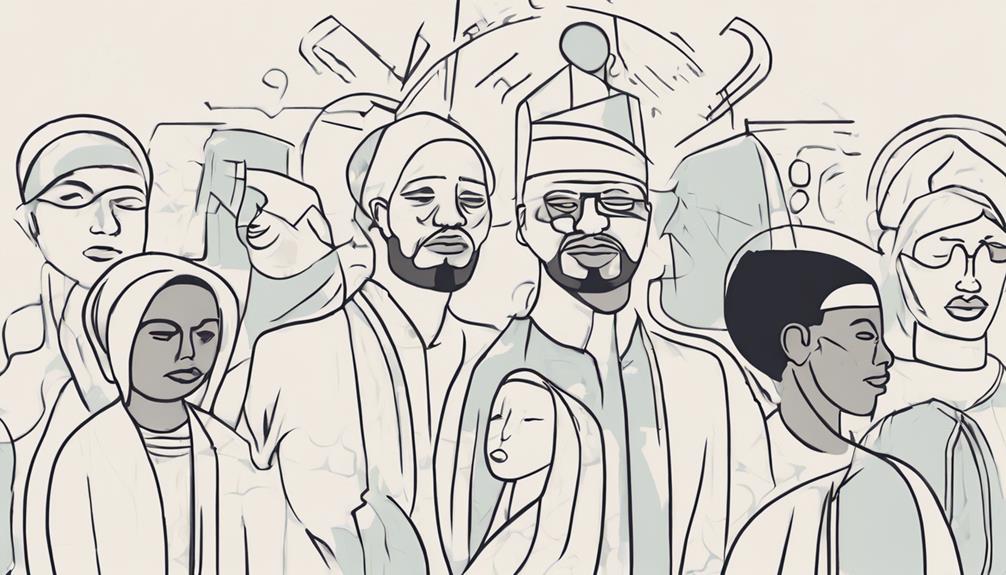
Within the fabric of societal structures, norms wield a profound influence on shaping and molding individuals' beliefs and values. Societal norms act as a set of unwritten rules that dictate acceptable behavior, thoughts, and beliefs within a community. These norms are heavily influenced by cultural factors, which can vary widely across different societies. Cultural influences within a society can lead to the development of diverse belief systems among its members. Social institutions and traditions within a society also play a crucial role in shaping individuals' beliefs, as they provide a framework for understanding the world and one's place within it.
Moreover, societal norms can create a shared framework that influences and validates specific beliefs held by a group of individuals. The variations in societal norms contribute significantly to the diversity of beliefs held by different groups within a society. As individuals navigate their social environments, they internalize these norms, which, in turn, shape their beliefs and values. In this way, societal norms play a significant role in the formation and reinforcement of belief systems within a community.
Evolution of Personal Beliefs
Amidst the intricate interplay of cultural influences, personal experiences, and cognitive development, personal beliefs undergo a continual process of evolution. This evolution is influenced by a variety of factors, including:
- Social Influences: Interactions with family, friends, community, and society at large shape individual beliefs through shared values, norms, and ideologies.
- Cognitive Biases: Mental shortcuts and predispositions impact how beliefs are formed and reinforced, leading individuals to interpret information in a way that aligns with their existing beliefs.
- Life Events: Significant experiences, both positive and negative, can challenge existing beliefs or solidify them, prompting individuals to reevaluate their perspectives.
- Access to Information: Exposure to diverse sources of information, education, and critical thinking skills can broaden one's understanding and lead to the reconsideration of previously held beliefs.
- Self-Reflection: Engaging in introspection, questioning one's beliefs, and being open to new ideas are essential for the continuous evolution of personal beliefs.
Role of Education in Shaping Beliefs
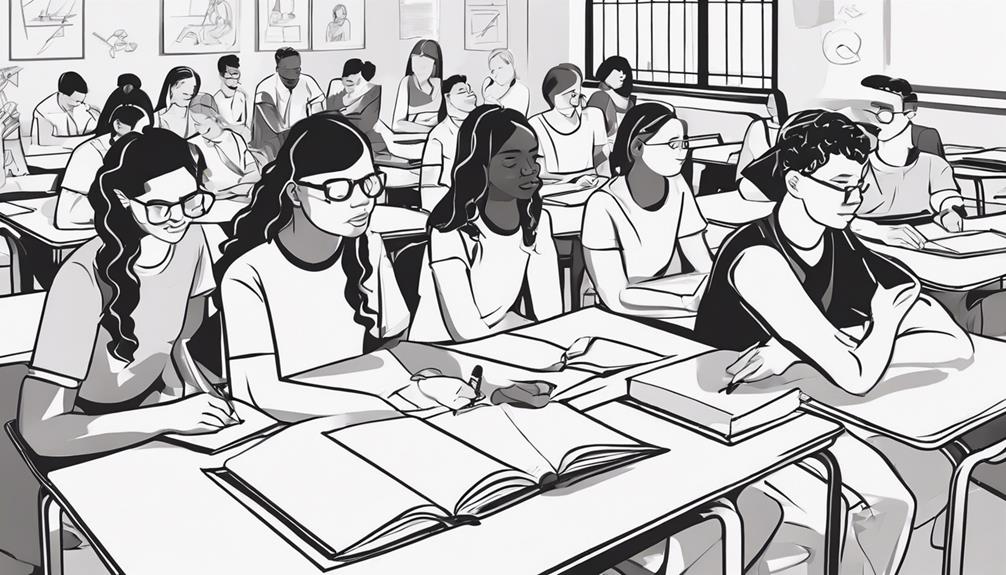
Education serves as a fundamental tool in shaping beliefs, equipping individuals with the cognitive skills and knowledge necessary to critically analyze and form opinions. Through exposure to diverse perspectives and values, education influences individuals' beliefs, contributing to a more open-minded and tolerant society. The quality of education received significantly impacts individuals' ability to reason, evaluate information critically, and develop informed and rational beliefs.
Education and Belief Formation
Through the dissemination of knowledge and exposure to diverse perspectives, individuals' beliefs are significantly influenced by the role that education plays in shaping their cognitive frameworks.
- Education provides information, critical thinking skills, and exposure to diverse perspectives.
- Higher education levels correlate with increased openness to new ideas.
- Formal education challenges and modifies existing beliefs through evidence-based reasoning.
- Exposure to different cultures in educational settings broadens perspectives.
- Education empowers individuals to question and evaluate their beliefs critically.
Critical Thinking Skills
In the realm of belief formation, the cultivation of critical thinking skills through education stands as a pivotal catalyst for shaping individuals' cognitive frameworks. Education equips individuals with the tools to critically evaluate information, consider diverse viewpoints, and form beliefs based on rational reasoning. Exposure to varied perspectives fosters open-mindedness and intellectual flexibility, enabling individuals to adapt their beliefs in light of new evidence. Through education, individuals develop the capacity to engage in constructive dialogue, challenge biases, and navigate complexities in belief formation. The table below illustrates the impact of education on critical thinking skills and belief formation:
| Education | Critical Thinking Skills |
|---|---|
| Exposure to diverse viewpoints | Ability to evaluate evidence and arguments |
| Development of open-mindedness | Capacity to question and analyze information |
| Cultivation of intellectual flexibility | Adaptation of beliefs based on rational reasoning |
Psychological Factors Affecting Beliefs
Psychological factors intricately intertwine with individuals' belief systems, playing a pivotal role in their formation and evolution. Various aspects of human psychology influence the development of beliefs, including:
- Individual experiences, upbringing, and education: These shape the foundation of beliefs by providing the initial framework through which individuals interpret the world.
- Cognitive biases: Confirmation bias and availability heuristic can lead individuals to selectively perceive information that aligns with their existing beliefs, reinforcing them further.
- Social influences: Peer pressure, family values, and cultural norms significantly impact belief systems as individuals often conform to societal expectations.
- Emotional factors: Fear, desire for security, and personal preferences can sway beliefs, as emotions play a crucial role in decision-making processes.
- Psychological processes: Cognitive dissonance and motivated reasoning affect how individuals maintain and defend their beliefs, influencing the stability and adaptability of their belief systems. Understanding these psychological factors is essential in comprehending the diversity and nuances of human beliefs.
Cultural Diversity in Belief Systems
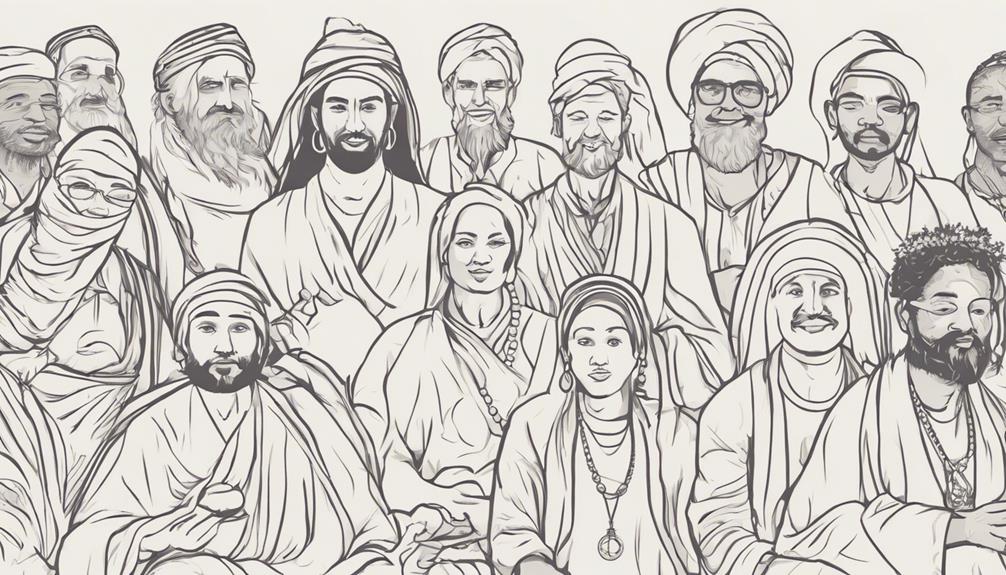
The intricate interplay between cultural diversity and belief systems manifests through the influence of social information, environments, and upbringing. Social information, such as norms, values, and traditions within a culture, shapes individuals' belief systems from an early age. Environments, both physical and social, also contribute significantly to the formation and maintenance of beliefs. For instance, exposure to diverse perspectives in multicultural settings can broaden one's understanding and acceptance of varying beliefs. Additionally, upbringing plays a crucial role in transmitting cultural beliefs from one generation to the next. Family, education, and societal institutions all play a part in shaping an individual's worldview and belief system.
Research indicates that cultural beliefs impact various aspects of human cognition and behavior, including decision-making processes and brain functioning. Understanding these cultural differences in beliefs is essential for fostering tolerance and respect among diverse communities. By acknowledging and appreciating the role of social information, environments, and upbringing in shaping belief systems, we can promote a more inclusive and understanding society.
Importance of Tolerance Towards Differing Beliefs
Understanding the importance of tolerance towards differing beliefs is crucial for fostering respect and cooperation in diverse societies. Tolerance plays a fundamental role in shaping harmonious relationships among individuals with varying perspectives. Here are five key reasons why tolerance towards differing beliefs is essential:
- Promotes Respect: Tolerance towards differing beliefs fosters respect for the diverse perspectives present in society, leading to a more inclusive and understanding environment.
- Encourages Empathy: Understanding and accepting different beliefs encourage empathy, compassion, and cooperation among individuals, creating a stronger sense of community.
- Enriches Exchange: Embracing diverse beliefs allows for a richer exchange of ideas, experiences, and cultural insights, contributing to personal growth and societal development.
- Builds Inclusive Communities: Respect for differing beliefs is essential for building inclusive communities and fostering harmony among people with varying perspectives, promoting unity and understanding.
- Fosters Tolerance: Prioritizing actions over beliefs can lead to mutual understanding, unity, and a more tolerant society, emphasizing the importance of accepting and respecting diverse viewpoints.
Significance of Open-Mindedness in Beliefs

Embracing open-mindedness in beliefs enables individuals to broaden their perspectives and engage with diverse viewpoints, fostering a culture of tolerance and intellectual growth. Open-mindedness allows people to consider various perspectives, leading to a more comprehensive understanding of different beliefs. This approach promotes tolerance by encouraging empathy and respect towards others, even when their beliefs differ. Closed-mindedness, on the other hand, can restrict personal development, impede critical thinking, and create conflicts between differing belief systems. By being open-minded, individuals are better equipped to adapt to evolving societal norms and incorporate new ideas into their belief structures. Cultivating open-mindedness not only facilitates intellectual curiosity but also promotes constructive dialogues with individuals holding contrasting beliefs.
| Benefits of Open-Mindedness | |
|---|---|
| Considers diverse perspectives | Fosters tolerance |
| Promotes intellectual growth | Encourages respectful dialogue |
Impact of Personal Experiences on Beliefs
Personal experiences serve as fundamental building blocks in the construction of beliefs, with one's upbringing playing a pivotal role in this process. The influence of upbringing on beliefs is profound, as it lays the foundation for the values and perspectives individuals adopt throughout their lives. Understanding how personal experiences shape beliefs is essential in comprehending the intricate interplay between individual backgrounds and the formation of diverse belief systems.
Personal Experiences Shape Beliefs
The formation of individuals' belief systems is intricately influenced by the interplay of personal experiences, encompassing various factors such as upbringing, education, and social interactions. Personal experiences can significantly shape beliefs through a variety of mechanisms:
- Traumatic events or positive encounters can strongly influence and shape a person's beliefs.
- Exposure to diverse perspectives and cultures can broaden and modify one's beliefs over time.
- Cognitive biases and emotional responses can impact how personal experiences are interpreted and integrated into belief systems.
- The interpretation of personal experiences can lead to the formation of unique and varied belief systems among individuals.
Influence of Upbringing on Beliefs
Influenced by the familial, cultural, and societal fabric in which individuals are embedded, upbringing serves as a foundational catalyst in shaping one's core beliefs. Childhood environments and interactions with family members contribute significantly to the development of unique belief systems. Exposure to family values, cultural traditions, and societal norms during formative years plays a pivotal role in defining an individual's beliefs. Cultural and geographical factors further contribute to the diversity of beliefs held by individuals based on their upbringing. Early exposure to varying perspectives and belief systems can broaden one's own beliefs and foster a deeper understanding of differing viewpoints. Below is a table illustrating the impact of upbringing on beliefs:
| Factors | Influence on Beliefs |
|---|---|
| Family Values | Core beliefs are often rooted in familial teachings and practices. |
| Cultural Traditions | Exposure to cultural customs shapes beliefs and practices. |
| Societal Norms | Adherence to societal expectations can influence belief systems. |
Connection Between Beliefs and Identity
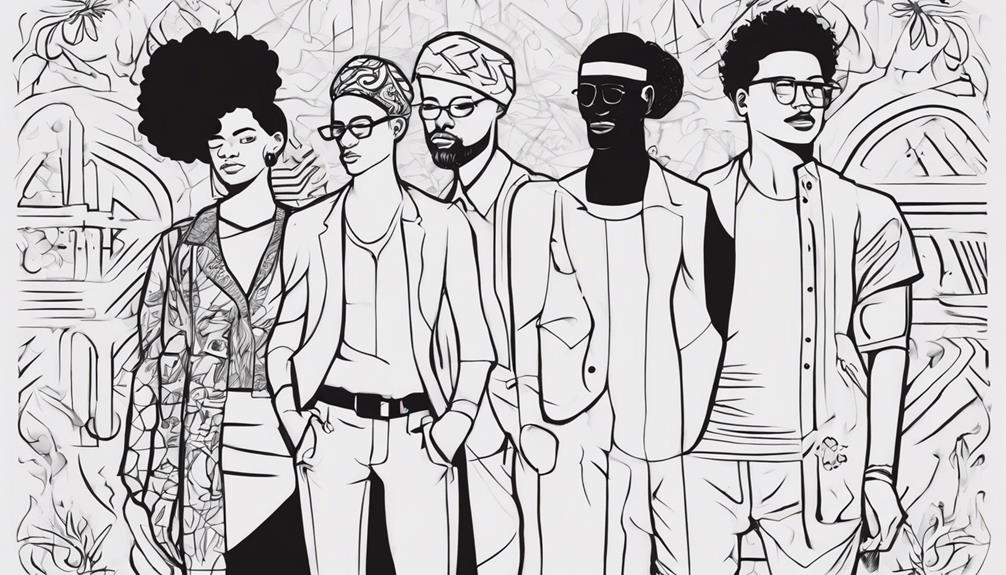
Beliefs serve as foundational pillars in shaping individuals' sense of self and their interconnectedness with the world around them. Personal beliefs are deeply intertwined with one's identity, influencing how individuals perceive themselves and their interactions with society. Here are five key connections between beliefs and identity:
- Beliefs shape values and morals, guiding individuals in their decision-making processes and behaviors.
- Cultural affiliations often stem from shared beliefs, forming a sense of belonging and unity among individuals.
- Diverse life experiences and exposure to varying perspectives contribute to the formation of unique belief systems, shaping individual identities.
- Beliefs influence how individuals interact with others, impacting social relationships and community dynamics.
- Identity, closely linked to beliefs, plays a crucial role in defining one's place in society and the world at large.
Understanding the intricate relationship between beliefs and identity is essential for comprehending the complexities of human behavior and social interactions.
Benefits of Understanding Varied Beliefs
Diversity in beliefs fosters a rich tapestry of perspectives that can enhance societal empathy and cooperation. When people take the time to understand different beliefs, it promotes tolerance and empathy in diverse communities. By appreciating varied beliefs, individuals can develop a deeper sense of cultural understanding and acceptance, leading to a more harmonious society. Exploring different beliefs also plays a crucial role in enhancing critical thinking skills and broadening perspectives. Recognizing the diversity in beliefs encourages inclusivity and peaceful coexistence among people with varying ideologies. Embracing different beliefs not only contributes to personal growth but also fosters mutual respect among individuals. Overall, the benefits of understanding varied beliefs are significant in promoting a more compassionate and cooperative society where people can coexist harmoniously despite their differences.
Frequently Asked Questions
Why Do Humans Have Different Beliefs?
Differences in human beliefs can be attributed to a complex interplay of cultural influences, cognitive biases, and social conditioning. These factors shape individuals' perspectives, leading to a diverse array of beliefs. Cultural norms, personal experiences, and societal structures all contribute to the formation of unique belief systems. Cognitive biases and social influences further influence how individuals interpret information and construct their worldviews. Overall, the multifaceted nature of human cognition and social interactions underlie the variability in beliefs among people.
Why Do We Have Different Belief Systems?
Belief systems vary due to cultural influences, personal experiences, and cognitive biases. Cultural backgrounds shape values and norms, influencing one's belief system. Personal experiences, such as upbringing and interactions, also play a pivotal role. Cognitive biases, stemming from mental shortcuts and processing errors, further contribute to the diversity of belief systems. By understanding these factors, we can appreciate the complexity and individuality inherent in the formation of belief systems.
Why Do People Believe in Different Things?
Culture influences, personal experiences, and cognitive biases contribute to the diversity of beliefs among individuals. These factors shape individuals' perspectives and values, leading to varied belief systems. Cultural norms, upbringing, and exposure to different ideas play a significant role in why people believe in different things. Understanding how these elements influence belief formation is crucial in comprehending the complexities of human cognition and social interactions.
Where Does a Person's Beliefs Come From?
A person's beliefs originate from a complex interplay of cultural influences, personal experiences, and family upbringing. These factors act as foundational pillars that shape an individual's worldview and values. Cultural norms, traditions, and societal expectations imprint certain beliefs, while personal encounters and upbringing instill specific perspectives. Understanding the multifaceted origins of beliefs can illuminate the diverse tapestry of human thought and behavior.
Conclusion
In conclusion, the diversity of beliefs among individuals is a complex phenomenon influenced by various factors such as upbringing, societal norms, personal experiences, and education. Understanding and respecting these differences is crucial for fostering an inclusive and harmonious society. By recognizing the significance of open-mindedness and embracing the benefits of diverse beliefs, we can promote empathy, tolerance, and mutual understanding among individuals with varying worldviews. Let us strive to cultivate a culture of acceptance and appreciation for the richness of diverse beliefs.
